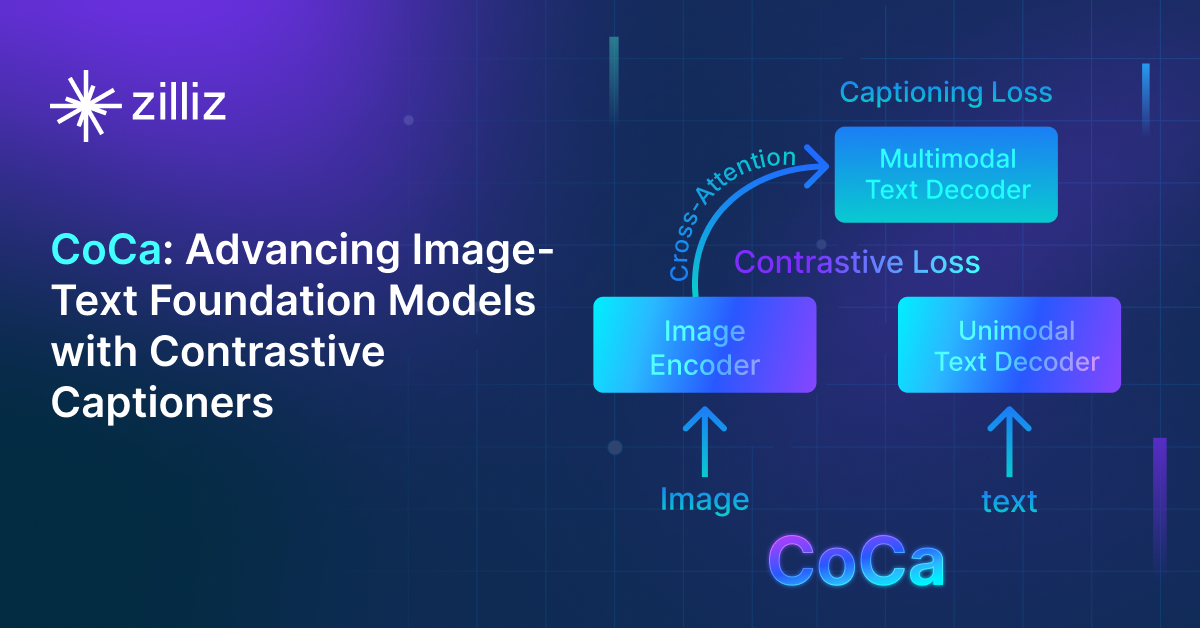Vector Databases: Redefining the Future of Search Technology
The landscape of search technology is rapidly evolving, driven by the quest for faster, more accurate, and context-aware search capabilities.
Read the entire series
- Cross-Entropy Loss: Unraveling its Role in Machine Learning
- Batch vs. Layer Normalization - Unlocking Efficiency in Neural Networks
- Empowering AI and Machine Learning with Vector Databases
- Langchain Tools: Revolutionizing AI Development with Advanced Toolsets
- Vector Databases: Redefining the Future of Search Technology
- Local Sensitivity Hashing (L.S.H.): A Comprehensive Guide
- Optimizing AI: A Guide to Stable Diffusion and Efficient Caching Strategies
- Nemo Guardrails: Elevating AI Safety and Reliability
- Data Modeling Techniques Optimized for Vector Databases
- Demystifying Color Histograms: A Guide to Image Processing and Analysis
- Exploring BGE-M3: The Future of Information Retrieval with Milvus
- Mastering BM25: A Deep Dive into the Algorithm and Its Application in Milvus
- TF-IDF - Understanding Term Frequency-Inverse Document Frequency in NLP
- Understanding Regularization in Neural Networks
- A Beginner's Guide to Understanding Vision Transformers (ViT)
- Understanding DETR: End-to-end Object Detection with Transformers
- Vector Database vs Graph Database
- What is Computer Vision?
- Deep Residual Learning for Image Recognition
- Decoding Transformer Models: A Study of Their Architecture and Underlying Principles
- What is Object Detection? A Comprehensive Guide
- The Evolution of Multi-Agent Systems: From Early Neural Networks to Modern Distributed Learning (Algorithmic)
- The Evolution of Multi-Agent Systems: From Early Neural Networks to Modern Distributed Learning (Methodological)
- Understanding CoCa: Advancing Image-Text Foundation Models with Contrastive Captioners
- Florence: An Advanced Foundation Model for Computer Vision by Microsoft
- The Potential Transformer Replacement: Mamba
- ALIGN Explained: Scaling Up Visual and Vision-Language Representation Learning With Noisy Text Supervision
Introduction
Search technology is the gateway to navigating the vast expanses of online information in the digital era. From finding relevant articles to discovering the perfect product, search engines have become indispensable tools in our daily lives. However, the landscape of search technology is rapidly evolving, driven by the quest for faster, more accurate, and context-aware search capabilities.
At the forefront of this evolution lies the emergence of vector databases. In this article, we will delve into their transformative role in redefining the way we interact with digital information. Unlike their tabular counterparts, vector databases excel at storing and processing data in a format that preserves spatial relationships, thereby making them ideal for tasks such as similarity search and semantic understanding.
Understanding Vector Databases
Vector databases signify a revolutionary shift in data management, specializing in handling high-dimensional data prevalent in applications such as image processing and natural language understanding. They store information in a vectorized format, preserving relationships between data points for operations like similarity search and clustering.
Their adaptability to handle diverse data types, including text, images, and sensor readings, sets them apart from traditional databases optimized for structured data. This versatility makes them ideal for modern applications dealing with various data sources.
Moreover, vector databases empower advanced search functionalities beyond simple keyword matching, leveraging high-dimensional vectors for sophisticated search operations based on content similarity and context. This capability proves invaluable in scenarios where users seek information based on semantic meaning rather than exact keyword matches.
In addition to their advanced search capabilities, vector databases offer notable performance improvements over traditional systems. Their optimized data structures and indexing mechanisms ensure faster query processing, resulting in shorter response times and enhanced scalability. This efficiency makes vector databases indispensable for handling large-scale datasets and demanding real-time applications.
The Evolution of Search with Vector Databases
Search technology has evolved significantly over the years due to data management and processing advancements. Today's search engines leverage sophisticated algorithms for recommendation systems, driven by a relentless pursuit of efficiency and relevance.
At the core of this evolution are vector databases, which offer a nuanced approach to information retrieval. Unlike traditional mechanisms, they enable similarity search and semantic understanding, representing data points as vectors in high-dimensional space. This facilitates more accurate and context-aware search operations, opening avenues for personalized recommendations and content discovery.
Initially confined to specialized domains like image processing, vector databases have expanded their utility to various industries, meeting the demand for intelligent search capabilities. They power a wide range of search technologies, from recommendation engines in e-commerce to content discovery algorithms in social media, delivering highly relevant and personalized results.
Moreover, vector databases drive advancements in natural language processing (NLP) and conversational search, enabling more intuitive interactions. Analyzing semantic context empowers search engines to understand user intent and deliver precise responses, even without exact keyword matches.
Real-World Implications
Integrating vector database-powered search technologies has had profound implications across numerous domains. This revolutionizes how we interact with digital information and profoundly shapes user experiences. From personalized product recommendations to content discovery in vast data repositories, the real-world applications of these technologies are vast and varied. We discuss 4 of the real-world implications of vector databases below:
E-commerce and Personalization
In e-commerce, vector database-powered search engines have become instrumental in delivering personalized product recommendations to users. These systems can identify product similarities and recommend items that align with the user's preferences by analyzing past purchase history, browsing behavior, and product attributes. This level of personalization enhances the shopping experience for users and drives increased engagement and conversion rates for online retailers.
Content Discovery and Recommendations
Social media platforms and content streaming services leverage vector database-powered algorithms to enhance content discovery and recommendations. By analyzing user interactions, such as likes, shares, and comments, these systems can identify patterns and similarities between content items, allowing them to deliver personalized recommendations tailored to each user's interests. Whether it's discovering new music on a streaming platform or finding relevant articles on a news website, vector database-powered recommendation engines play a pivotal role in shaping the content consumption experience.
Information Retrieval and Search Efficiency
In domains where the volume of data is vast and diverse, vector database-powered search engines offer unparalleled efficiency in information retrieval. Whether searching through vast document repositories, analyzing sensor data in IoT applications, or conducting forensic investigations, these systems enable users to locate relevant information with precision and accuracy quickly. Moreover, the semantic understanding capabilities of vector databases allow for more intuitive search interactions, enabling users to express their queries in natural language and receive contextually relevant results.
Healthcare and Biomedical Research
In the field of healthcare and biomedical research, vector database-powered search technologies are driving advancements in data-driven decision-making and precision medicine. By analyzing patient data, genetic sequences, and clinical research articles, these systems can identify patterns and correlations that may not be apparent through traditional analysis methods. This enables healthcare professionals to make informed treatment decisions, identify potential drug candidates, and accelerate medical research and discovery.
The real-world implications of vector database-powered search technologies are vast and multifaceted, spanning across diverse domains and applications. From enhancing user experiences to driving innovation and efficiency, these technologies are reshaping the digital landscape profoundly, unlocking new possibilities for exploration, discovery, and engagement.
Future Trends and Predictions
As we look ahead to the future of search technology, one thing is clear: vector databases will continue to play a pivotal role in driving innovation and shaping the digital landscape. With advancements in artificial intelligence (AI) and machine learning (ML), alongside the maturation of vector database technologies, we can anticipate several key trends and developments in the coming years. This includes:
Integration of AI and ML
One of the most prominent trends in search technology is the integration of AI and ML algorithms alongside vector databases. By leveraging the power of machine learning models, search engines can gain deeper insights into user preferences, behaviors, and intent, enabling more personalized and contextually relevant search experiences. This integration will enhance the accuracy and efficiency of search algorithms and enable new capabilities such as predictive search and anticipatory recommendations.
Context-Aware Search
With the increasing sophistication of AI-powered search engines, we can expect a shift towards more context-aware search experiences. Rather than relying solely on keyword matching, search algorithms will consider the broader context of user queries, including their location, past interactions, and current context. This contextual understanding will enable search engines to deliver more tailored and relevant results, anticipating the user's needs and preferences more accurately.
Multi-Modal Search Interfaces
As the boundaries between text, audio, and visual content blur, we can anticipate the emergence of multi-modal search interfaces that cater to diverse user preferences and input modalities. Vector database-powered search engines will be equipped to analyze and process various forms of data, including text, images, and audio, enabling users to search and interact with content more naturally and intuitively. Whether conducting a voice search on a smart speaker or searching for images based on visual similarity, multi-modal search interfaces will offer enhanced flexibility and convenience to users.
Federated Search Across Data Silos
With the proliferation of data silos across organizations and platforms, there is a growing need for federated search solutions that can seamlessly access and retrieve information from disparate sources. With their ability to handle diverse data types and structures, Vector database technologies are well-positioned to address this challenge by enabling federated search across distributed data repositories. This will empower organizations to break down data silos, streamline information access, and facilitate collaboration and knowledge sharing across departments and teams.
Ethical and Responsible AI
As AI-powered search technologies become more pervasive, an increased focus will be on ethical and responsible AI practices. This includes ensuring transparency, fairness, and accountability in the design and deployment of search algorithms and addressing concerns related to bias, privacy, and data security. Vector database companies must prioritize ethical considerations in their AI development processes, collaborating with stakeholders to establish guidelines and best practices that promote trust and transparency in search technology.
The future of search technology with vector databases is brimming with possibilities. By staying at the forefront of these trends and embracing the potential of vector database technologies, organizations can unlock new opportunities for growth, engagement, and impact in the digital age.
Conclusion
In search technology, vector databases emerge as innovation catalysts, reshaping digital interaction and propelling search evolution. From specialized structures to widespread adoption, they redefine search functionalities, enabling efficient, precise, and context-aware experiences.
Throughout this exploration, we've unveiled vector databases' transformative impact on search technology. Their evolution has been profound from handling complex data to enabling advanced search. We've witnessed their real-world applications across diverse domains, from e-commerce to healthcare, driving innovation and enhancing efficiency.
Looking forward, the future of search with vector databases is promising, with AI integration and context-aware experiences leading the way. We urge readers to stay abreast of advancements in vector databases, recognizing their potential to shape digital interaction and information discovery.
Let's embrace the transformative power of vector databases, embarking on a journey towards a future where search fosters deeper understanding and connection with the world.
- Introduction
- Understanding Vector Databases
- The Evolution of Search with Vector Databases
- Real-World Implications
- Future Trends and Predictions
- Conclusion
Content
Start Free, Scale Easily
Try the fully-managed vector database built for your GenAI applications.
Try Zilliz Cloud for FreeKeep Reading

Batch vs. Layer Normalization - Unlocking Efficiency in Neural Networks
By unraveling the intricacies of layer and batch normalization, we aim to equip neural network beginners with the knowledge to unlock efficiency and enhance model performance.

What is Object Detection? A Comprehensive Guide
Object detection is a computer vision technique that uses neural networks to classify and locate objects, such as humans, buildings, or cars, in images or video.

Understanding CoCa: Advancing Image-Text Foundation Models with Contrastive Captioners
Contrastive Captioners (CoCa) is an AI model developed by Microsoft that is designed to bridge the capabilities of language models and vision models.
